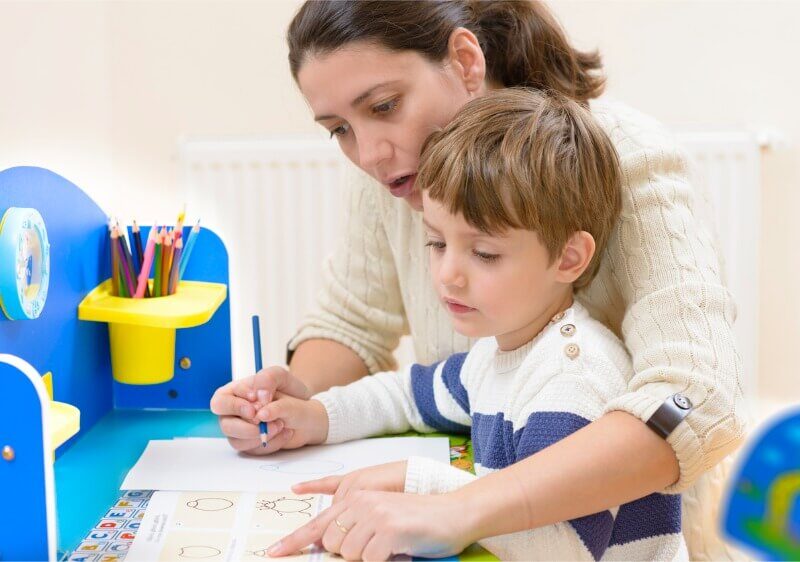Your community or school librarian is a great resource for thematic and seasonal book recommendations. Try these three books, which represent three different genres (concept, nonfiction, narrative).
3 Books for Speech and Language Therapy
Along with each book, we’ve given examples of different types of speech/language goals that could be targeted.
1. In November by Cynthia Rylant
A descriptive book about the scenes, smells, and feelings associated with this month. This book introduces thematic vocabulary, descriptive language, and compound and complex sentences.
2. The Wall by Eve Bunting
A story about a boy and his dad and their trip to the Vietnam Memorial in Washington, DC, to find the grandfather’s name on the wall. It offers great visuals to introduce Veteran’s day, vocabulary associated with it, and draw connections between history, the book, and your own family, school, and community. Additionally, take advantage of the distinct events in past, present, and future to practice syntax, verb tenses, and time words like ‘before’, ‘after’, ‘when’, and ‘a long time ago’.
3. The Firefighter’s Thanksgiving by Maribeth Boelts
A sweet narrative about some firefighters whose Thanksgiving preparations keep getting interrupted by emergency calls. In the end, even after one firefighter is hurt, they find a feast prepared for them by their neighbors, complete with a heartfelt thank-you note. This is a natural context for teaching sequencing, explaining causes and reasons, and talking about changes in plans!
An important piece of any literature-based speech/language lesson is explicitly telling your students why you are reading the book and what they are working on!
“We’ve been working on learning and remembering new words. This book has some words we hear a lot in November. I’ve chosen 3 important ones that we’re going to learn and use.”
or
“When we tell stories, we use words like ‘first’, ‘then’, ‘before’, and ‘after’ to help people understand what order things happen in. We’re going to use this story to practice using those words.”
Join the Care Options For Kids Team!
Are you ready for meaningful work that comes with benefits and not burnout? Join the compassionate care team that helps children and families live their best lives. Our clinicians provide best-in-class pediatric nursing, therapy, and school-based services. We bring individualized care to children where they live, work, and play. We have opportunities in homes, schools, and clinics across the country.
Apply at Care Options for Kids now. We make it easy to start so you can make a difference as soon as possible.





